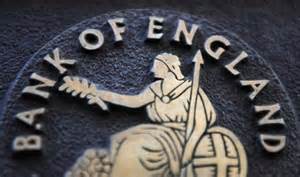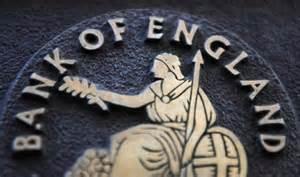
LONDON, Sept. 14 (Xinhua) -- The Bank of England (BOE) kept its bank rate at a record low of 0.25 percent, offsetting near-term dampeners on economic activity against expected growth and set against the background of continued uncertainty about Brexit.
The BOE's rate-setting Monetary Policy Committee (MPC) voted 7-2 to retain the 0.25 percent rate, set last August as a policy response to stimulate the British economy in the wake of the Brexit vote and to counter the prospects of ensuing economic uncertainty.
The low level of sterling (currently 1.33 U.S. dollars to the pound, down from 1.48 U.S. dollars on the day of the Brexit vote) continues to boost consumer prices broadly but without adverse consequences for inflation expectations further ahead, the BOE said in a summary on Thursday.
"The MPC is clear that in the period of Brexit negotiations, the economic implications are 'influenced significantly by the expectations of households, firms and financial markets' about Britain's future relationship with the EU and the transition to it," Sam Hill, chief UK economist at Royal Bank of Canada (RBC) in London told Xinhua.
The minutes note it is "essential to take account of these evolving expectations" for Brexit. Given the perceived lack of progress on Britain's exit bill and the knock-on consequences for trade deal talks, changing expectations in the coming weeks are a possibility, he added.
Regular pay growth remains modest in the near term but picks up over the forecast period.
Figures released on Wednesday showed CPI inflation had reached 2.9 percent on the back of weaker sterling pushing up prices of imported goods for consumers and raw materials for manufacturers.
Pay growth has not kept pace, with growth in the three months to July at 2.1 percent, although the Bank noted that the joblessness rate was at 4.3 percent, the lowest figure in over 40 years.
The bank's aim is to keep inflation at 2 percent, and the Bank said the "exceptional circumstances" of Brexit and the large depreciation in sterling would mean inflation remaining above target for the next three years.
The bank warned that all the members of its MPC expected that the bank rate would need to rise over the next two years, and to a greater extent than the markets are currently pricing in.
Markets expect a 25 basis point rise in the second half of 2018, but the bank cautioned there could be a "withdrawal of monetary stimulus" in the coming months to keep inflation closer to target.
The MPC highlighted weakening household consumption as a problem. Economic growth has been driven by the domestic consumption in recent years, but this grew by only 0.1 percent in the second quarter.
However the MPC is now more seriously considering a rate rise.
"The decision will continue to be data-dependent. Nevertheless, in contrast to August, the reference to 'the coming months' clearly implies an MPC now thinking more actively about a rate hike," said Hill.




 A single purchase
A single purchase









